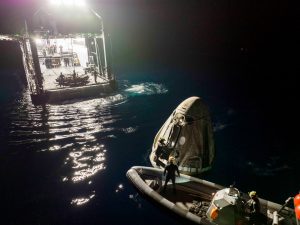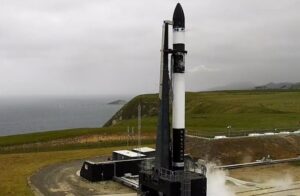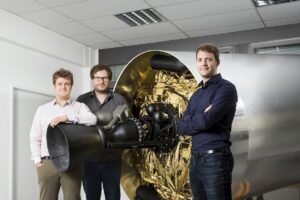Axiom-3 Mission’s key experiments on microgravity: investigating cancer, women’s fertility, and human cells
4th Dec 2023
On Thursday, 30 November, Axiom Space held a virtual press conference with space agencies and European partners representing the crew members of Axiom Mission 3 (AX-3).
Distinguished leaders from the Italian Air Force, Italian Space Agency, TÜBİTAK Space Technologies Research Institute (TÜBİTAK UZAY), European Space Agency (ESA), and the Swedish National Space Agency (SNSA) discussed the details of experiments that will be held by the future AX-3.
Primary objectives of AX-3
As reported, the crewmembers of AX-3 will conduct essential scientific experiments, microgravity research, and demonstrations in low-Earth orbit (LEO). The mission’s overarching goals encompass two key areas. Firstly, it brings significant advancements in healthcare and disease treatment accessible to all humans globally. Secondly, gaining insights into human adaptation to space, offering valuable lessons for future space flight missions. Overall, the ongoing efforts during AX-3 aim to enhance our understanding of how humans can thrive beyond our home planet.
Cardiovascular disease
Colonel Domenico Antonacci, from the Space Policy and Operations Office of the Italian Air Force, stated that in collaboration with Italian academic institutions, an extensive medical investigation of the Ax-3 crew will be carried out, utilizing ultrasound and bringing sample collections to the ISS. Long-term follow-ups will provide a deeper understanding of the interaction between space and human physiology, specifically examining the aerospace effects of flights on cardiovascular disease and arterial health.
Ömer ATAŞ, Project Manager/Chief Engineer at TÜBİTAK Space Technologies Research Institute, added that experiments will involve the investigation of astronauts’ blood before, during, and after the flight, contributing to a better understanding of the treatment of cardiovascular diseases.
Neurodegenerative disease
Dr. Barbara Negri, Head of the Human Flight and Scientific Experimentation Unit at the Italian Space Agency, announced the research aimed to enhance our understanding of neurodegenerative diseases, is planned. It may be crucial for developing new therapies for age-related pathologies on Earth. Furthermore, the findings will provide valuable information on the relationship between special antioxidants and stress, and their impact on human cells.
Women’s fertility
Another experiment aims to offer new insights into how microgravity affects women’s fertility, particularly its functions. The success of this experiment is anticipated to contribute to advancements in fertility treatment and our understanding of fertility mechanisms on Earth.
Cancer treatment
Building on the achievements of Ax-2, the upcoming mission will maintain a strong focus on cancer research and space manufacturing. The cancer investigation will involve the identification of early warning signs, prediction, and prevention, ultimately leading to the development of new cancer therapies.
“The introduction of organoids—simple tissue-engineered cell-based in vitro models — into microgravity conditions aims to reveal general methods for treating various diseases, including cancer, on Earth”, said Jana Stoudemire, Director of In-Space Solutions, Axiom Space.
Stress level and cells activity
Kristine Dannenberg, Head of Space Exploration and Access to Space at the Swedish National Space Agency, has outlined two experiments planned by the Swedish part of the crew. The first involves investigating the stress levels of astronauts and how it impacts their cognitive features and brain activity. The second experiment focuses on cell studies conducted in microgravity conditions. Over a six-minute period, astronauts will observe how cells perform in microgravity, monitoring their growth and assessing whether they divide at an accelerated rate.
Bone density
The crew will also study bone density changes in Markus Wandt, the Swedish astronaut. This examination aims to demonstrate the speed at which his bones recover from the flight and serves as a test bed for researching the effects on bones after exposure to microgravity conditions.
![Beauty of the Pink Moon And Lyrid Meteor Shower in This Week’s Best Astrophotos [19-26 April] Beauty of the Pink Moon And Lyrid Meteor Shower in This Week’s Best Astrophotos [19-26 April]](https://orbitaltoday.com/wp-content/uploads/2024/04/Pink-Moon-is-on-its-way-above-the-mountains-1-300x300.jpg)





Thank you for your comment! It will be visible on the site after moderation.